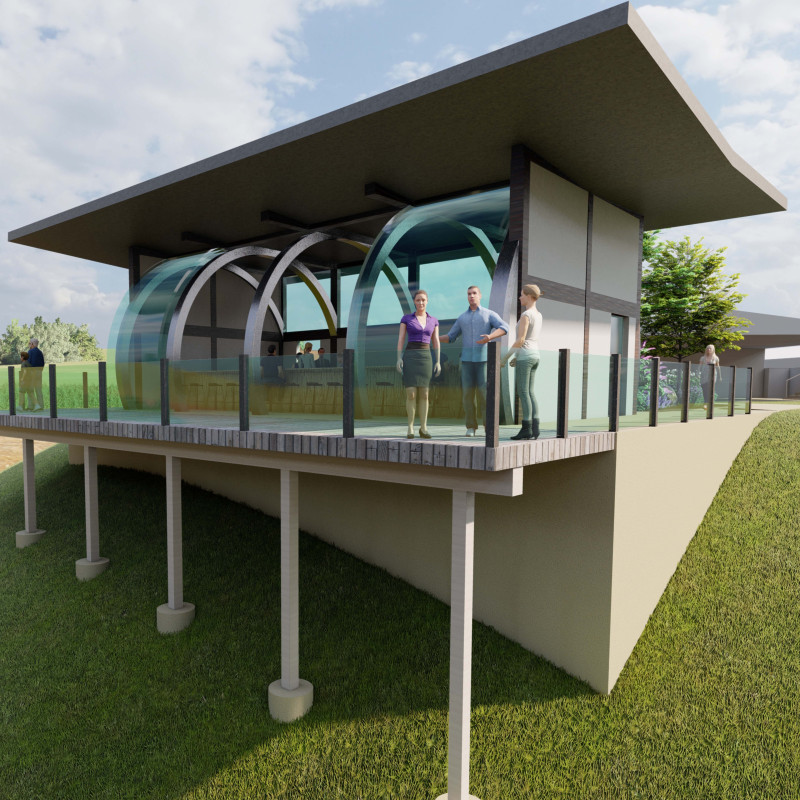5 key facts about this project
The Monte d'Oiro Wine Tasting Room and Pollinator Garden is located at Quinta do Monte d'Oiro Winery in Alenquer, Portugal. The design aims to connect wine tasting with nature while promoting ecological awareness. The project focuses on creating an enjoyable space for visitors that highlights the beauty of the vineyards and surrounding hills. This approach combines functionality with a deep respect for the environment.
Design and Layout
The tasting room occupies an area of 60 square meters and can accommodate 30 guests at a central wine bar. The layout is designed to encourage social interaction, with a curved form that enhances movement through the space. Large glass windows and railings allow for clear views of the landscape, drawing visitors into the natural setting. This design creates a welcoming atmosphere where guests can relax and immerse themselves in their surroundings.
Materials
Materials selected for the project contribute to both its look and practical use. The walls are finished with white plaster, which brightens the interior and reflects sunlight. Oak accents are added to create a warm, inviting feel. A concrete foundation provides the necessary strength and stability against the elements. The combination of these materials fosters a cohesive feel with the landscape, supporting the concept of sustainability.
Pollinator Garden
The permaculture pollinator garden is an important feature that enhances local biodiversity. It provides a living example of sustainable agricultural practices. Techniques like hugelkultur are used to retain moisture and enrich the soil naturally. This reduces the need for watering while supporting various forms of wildlife. The garden is designed to mimic natural forest layers, which increases its resilience and productivity, making it an active participant in the vineyard ecosystem.
Visual Connection
An observation deck extends from the tasting room, allowing guests to step outside and enjoy panoramic views of the vineyards and hills. Clear glass railings keep the sightlines open and unobstructed, reinforcing the connection between indoor and outdoor spaces. This design feature enhances the visitor experience, inviting guests to appreciate the surrounding beauty while enjoying their time at the winery.























































